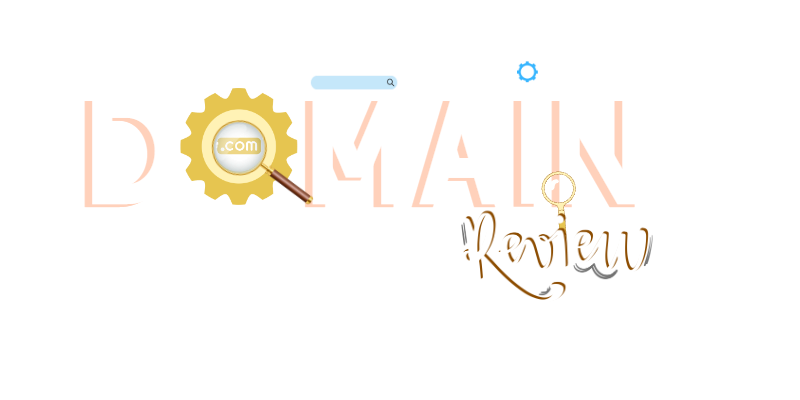Introduction
If you're a website owner or a blogger looking to increase website's visibility on search engines, you've likely come across the term "SEO" - Search Engine Optimization. Is is the process of optimizing your website's content and structure to make it more attractive to search engines, ultimately improving its ranking in search results. In this beginner's guide to SEO, we will explore some essential tips and tricks to help you improve your website's ranking and drive more organic traffic.
Understanding SEO: The Basics
Before we dive into the tips and tricks, let's understand the basics of SEO. Search engines like Google using complex algorithms to determine the relevance & quality of a website's content. When a user searches for a query, the search engine scans through millions of web pages & presents the most relevant results based on various factors. SEO aims to optimize your website to align with these factors, making it more likely to rank higher in search results.
Now that you have a basic understanding of SEO, let's dive into some practical tips and tricks to improve your website's ranking.
Tips and Tricks for SEO
1. Conduct Keyword Research
2. Optimize On-Page Elements
On-page optimization involves optimizing various elements of your website's pages to make them more search engine friendly.
3. Build High-Quality Backlinks-
Backlinks are links from other websites that point to your website. They are an essential factor in SEO, as they indicate to search engines that your website is credible & authoritative.
4. Optimize for Mobile
With the increasing use of mobile devices for browsing the internet, optimizing your website for mobile is crucial for SEO.
5. Use Social Media for SEO
6. Monitor and Analyze Your SEO Efforts
Monitoring & analyzing your SEO efforts is crucial to identify what's working & what's not and make necessary adjustments.
- Keywords: These are the words or phrases users enter into a search engine to find information. Conducting keyword research and targeting relevant keywords in your website's content is crucial for SEO.
- On-page optimization: This includes optimizing your website's meta title, meta description, URL structure, headings, and content to align with your targeted keywords.
- Off-page optimization: This involves building of high-quality backlinks from authoritative websites, social media promotion & online reputation management to improve your website's authority & credibility.
- User experience: Providing a seamless user experience on your website, including fast loading times, mobile responsiveness & easy navigation, can positively impact your website's ranking.
- Content quality: Creating high-quality, engaging & valuable content that aligns with user intent is essential for SEO. It should be well-written, easy to read, and free from grammatical errors.
- Keyword research is the foundation of SEO. It involves identifying the keywords & phrases that are relevant to your website's content & have high search volume. These keywords will be the focus of your SEO efforts.
- Look for keywords with moderate to high search volume and low to medium competition.
- Consider long-tail keywords (phrases with three or more words) as they are less competitive and more specific, targeting users with a higher intent to convert.
- Meta Title: The meta title is the title that appears in search results. It should be concise & contains your targeted keyword & compel users to click on your link.
- Meta Description: The meta description is the brief summary that appears below the meta title in search results. It should be compelling, contain your targeted keyword & provide a clear idea of what users can expect from your content.
- URL Structure: Use descriptive URLs that contain your targeted keyword & are easy to understand. Avoid using numbers, special characters or irrelevant words in your URLs.
- Headings: Use heading tags (H1, H2, H3, etc.) to structure your content & make it more readable for both users and search engines. Use your targeted keywords in the headings to indicate the main topics of your content.
- Content: Create high-quality, engaging, and valuable content that aligns with user intent and provides answers to their queries. Use your targeted keywords naturally throughout the content, but avoid keyword stuffing, which can harm your SEO efforts.
- Image Alt Text: Optimize the alt text for your images with descriptive and keyword-rich text. This helps search engines understand what the image is about and can improve your website's visibility in image searches.
- Guest Posting: Write high-quality guest posts for reputable websites in your niche & include a link back to your website in the author bio. This can help you earn valuable backlinks and increase your website's authority.
- Outreach: Reach out to influencers, bloggers & other website owners in your niche and request them to link to your website. Make sure to provide them with valuable content and a compelling reason to link to your website.
- Content Promotion: Share your content on social media, online communities, and relevant forums to increase its visibility and attract potential backlinks from interested users.
- Responsive Design: Ensure that your website is designed to be responsive, that it adjusts to different screen sizes & devices, providing a seamless user experience across all devices.
- Mobile Page Speed: Optimize your website's loading times for mobile devices, as slow loading times can result in higher bounce rates and lower search engine rankings. Use tools like Google PageSpeed Insights to identify and fix any speed issues.
- Mobile-Friendly Content: Make sure your content is easily readable and accessible on any mobile devices. Avoid using small fonts, flash, or pop-ups that may disrupt the user experience on mobile devices.
- Social media can play a vital role in improving your website's SEO.
- Social Sharing: Encourage users to share your content on social media by including social sharing buttons on your website. When your content is shared on social media, it can increase your website's visibility and attract more traffic.
- Social Profiles: Create & optimize your social media profiles with relevant keywords & a link back to your website. This can help your social profiles rank in search results and drive more traffic to your website.
- Google Analytics: Set up Google Analytics to track your website's performance, including organic traffic, bounce rate & conversion rate. Analyze your data regularly to identify trends, patterns & areas for improvement.
- Google Search Console: Use Google Search Console to monitor your website's performance in search results, identify any crawl errors, and submit your sitemap to help search engines index your content.
- SEO Tools: Use Domainreview.net analyze your website's SEO performance, track keyword rankings, and identify opportunities for improvement.
Conclusion:
SEO is a complex and ever-evolving field, but with the right strategies & tactics, you can improve your website's ranking & drive more organic traffic. It's important to focus on creating high-quality, engaging content that aligns with user intent and follows SEO best practices. Optimizing your website's technical aspects, building high-quality backlinks, optimizing for mobile & utilizing social media can all contribute to your SEO success. Remember to use targeted keywords naturally throughout your content, but avoid keyword stuffing. Keep up with the latest SEO trends, monitor & analyze your efforts, and make necessary adjustments to continuously improve your website's SEO performance. With consistent effort and patience, you can improve your website's ranking and attract more organic traffic, ultimately leading to increased visibility, credibility & success online. So, go ahead & implement these beginner-friendly SEO tips, you can check complete details about your domain at https://domainreview.net/



